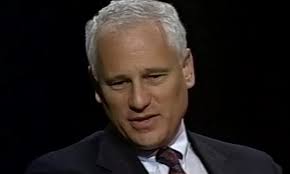When I got up this morning, I learned that Neil Goldschmidt had died. There will be stories now attempting to weigh his abuse of a young girl in the same scale as his imaginative and thrilling leadership in Oregon politics.
They will take two forms. Neil was a gifted and powerful politician BUT. And Neil was an egregious child-abuser BUT. The story I want to tell is neither of those and it has very little public significance. Still, it has mattered a good deal to me since the day it happened.
When Goldschmidt took office, I was working for an education planning agency that the legislature had created many years before and then slowly lost interest in. Goldschmidt made Paul Bragdon, former president of Reed College in Portland, his “education adviser” and placed him as head of the agency. The agency was, therefore, on its way to becoming Goldschmidt’s “office of educational advisers.”
In political terms, it was to be answerable to the executive branch, not to the legislative branch.
But just how the agency and the governor’s office ought to relate to each other was something we had to work out on the fly. Goldschmidt didn’t know; Bragdon didn’t know. So our first meeting with the governor was fraught.
Bragdon had a “presentation” format in mind. He spread out various elements of some issue we should deal with and gave everyone responsibility for a piece of it. Each of us was to write up “our part,” which would become part of the “agency report” to the governor. Then we would troop into the Governor’s working office—just behind the ceremonial office—and we would “walk him through” the report.
Bragdon led off, covering the first topic and giving Goldschmidt an early view of what was to come. Lots of careful language, lots of formal deference, and little else.
The Governor let us get about three speakers into the drama when he interrupted. This interruption is one of the best experiences I ever had in state government. He said, “I’ve READ the report. Could we talk about what it means and what we should do?”
I’ve phrased his interruption as a question, but everyone in the room knew it was not. It was a rebuke, first Then it was a primer on how he would like to treat the “advice” that would be coming to him. Then it was an invitation to propose something audacious and eye-catching.
That was my very small window into what “advising” Governor Goldschmidt was going to be like and it set the bar, frankly, for my hopes of every succeeding governor until I left state government under Gov. Kitzhaber many years later.
“This is how,” I said to myself, “a Governor who wants to do things will use the specialized advice available to him.” It was a wonderful moment.
[I had to go through a lot of pictures to get this one. Most of them picture him as a young and idealistic mayor of Portland or as a publicly exposed demon hiding from reporters or as a high-flying governor newly in office. I didn’t know him in any of those ways. This picture is the closest I could come. That is the face he had on when he said, “I’ve READ the report.”

